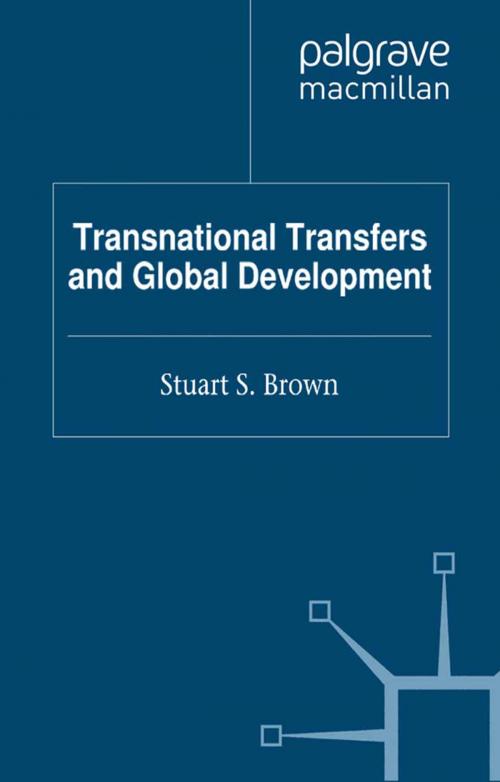Transnational Transfers and Global Development
Nonfiction, Social & Cultural Studies, Political Science, Politics, Economic Conditions, International, International Relations| Author: | ISBN: | 9780230357495 | |
| Publisher: | Palgrave Macmillan UK | Publication: | June 10, 2016 |
| Imprint: | Palgrave Macmillan | Language: | English |
| Author: | |
| ISBN: | 9780230357495 |
| Publisher: | Palgrave Macmillan UK |
| Publication: | June 10, 2016 |
| Imprint: | Palgrave Macmillan |
| Language: | English |
This pioneering volume invites scholars from different social science disciplines to contribute their competing perspectives to a far-ranging albeit understudied dimension of globalization. Globalization has been defined as progressively integrated, national product and factor markets, cemented by the revolution in transportation and communications technology. This process has been driven by transnational corporations who have erected intricate, global supply chains. Such commercial advances have, in turn, intensified the interdependence among states and the authors raise a number of questions: Can the multi-variegated, cross-border activities in which such non-state actors engage be analyzed through a single conceptual lens? Can non-state transnational transfers be so clearly distinguished from exchanges in practice? What are the implications of transnational transfers, where material and non-material value is transferred abroad with no assurance, or even expectation of reciprocal compensation, for sovereignty? The case studies range from the impact of worker remittances on failed states to capacity building by global civil society on behalf of nascent NGOs in China to the transfer of security (or insecurity) via peacekeepers, track two diplomats and private security contractors.
This pioneering volume invites scholars from different social science disciplines to contribute their competing perspectives to a far-ranging albeit understudied dimension of globalization. Globalization has been defined as progressively integrated, national product and factor markets, cemented by the revolution in transportation and communications technology. This process has been driven by transnational corporations who have erected intricate, global supply chains. Such commercial advances have, in turn, intensified the interdependence among states and the authors raise a number of questions: Can the multi-variegated, cross-border activities in which such non-state actors engage be analyzed through a single conceptual lens? Can non-state transnational transfers be so clearly distinguished from exchanges in practice? What are the implications of transnational transfers, where material and non-material value is transferred abroad with no assurance, or even expectation of reciprocal compensation, for sovereignty? The case studies range from the impact of worker remittances on failed states to capacity building by global civil society on behalf of nascent NGOs in China to the transfer of security (or insecurity) via peacekeepers, track two diplomats and private security contractors.















